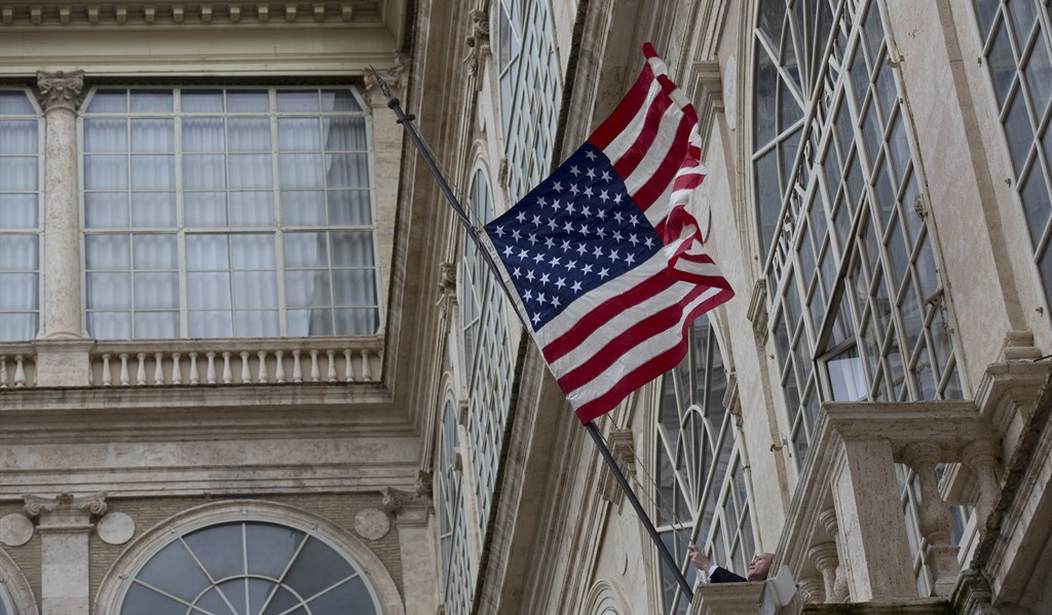Yesterday, the IMD World Competitiveness Center released its Global Rankings, which saw the United States catapult back to the top of the list for the first time since 2015.
In fact, the United States leapfrogged three places to displace Hong Kong at the pinnacle:
- The United States +3
- Hong Kong -1
- Singapore - unchanged
- Netherlands +1
- Switzerland -3
The IMD World Competitiveness Center has been making this list for 30 years with a mission of nations to employ it as a toll and objective.
The rankings involve 250 indicators that are broken into four categories:
- Economic Performance
- Government Efficiency
- Business Efficiency
- Infrastructure
It should be noted that despite improvements in ranking this year, major European economies are in the middle of the pack: France (28), Portugal (33), Spain (36), and Italy (42).
Ultimately, the list is said to highlight those nations that are creating long-term value for its citizens.
I call that winning.
Words
For investors, there are two words of the day: “Wow” & “Symmetrical.”
Let’s begin with the latter because the word debuted after the end of the Federal Open Market Committee (FOMC) gathering on May 2nd. It was something of a head-scratcher, but now we know it means the Fed will play ball and be real about inflation.
In yesterday’s minutes, the word was used nine times to drive home the point that inflation can eventually run above the Fed’s 2% target and won’t be an instant death knell to the economy or to the stock market. This feels like a common-sense approach; perhaps it’s not such a bad thing Jerome Powell isn’t a classically trained economist.
Recommended
This revelation sparked a market reversal for the Dow Jones Industrial Average that had already begun in other equity indices. The Dow made a 220-point reversal, closing near the high of the session -yesterday’s session was a major buy signal.
Consumer Spending Powers Market
In addition to the reversal in the major indices, market leadership points to the fact American consumers are flush and smarter about how they are going to spend this year. Eight of the top ten winners in the S&P 500 were retailers. Tiffany (TIF) crushed it along with Ralph Lauren (RL), and Lowe’s (LOW) was able to blame bad weather with strong and confident guidance. We also saw a rebound in big losers AutoZone (AZO) and Kohl’s (KSS).
#1 TIF +23% | #5 JWN +4% |
#2 RL +14% | #6 NFLX +4% |
#3 LOW +10% | #8 AZO +3% |
#4 AAP +7% | #10 KSS +3% |
Stop Fretting About the Top
After the close on Wednesday, the trend continues as Williams-Sonoma (WSM) blew away consensus, aspirational spending is real, and the stock is up more than 8%.
Okay, you are still worried about the market because the best stocks are already changing hands at 52-week highs - or in some cases, all-time highs.
Yesterday, I had a woman make this point as she fretted about never owning Boeing (BA).
Investing is about looking into the future and measuring and managing risk against potential.
Face it. Investors could have avoided buying Boeing because the shares were changing hands at an all-time high on so many occasions, including:
- Jan 28, 1980: $6.65
- Jun 23, 1986: $13.77
- Jul 10, 1990: $30.60
- Jul 28, 1997: $58.50
- Dec 4, 2000: $70.00
- Sep 24, 2007: $105.00
- Feb 23, 2015: $150.00
Yesterday, Boeing closed at $359 a share, and I think the stock is cheap.
Today’s Session
Stocks have been drifting all morning long as selling has intensified ahead of the open. It’s not a disaster but the kind of reaction we’ve come to expect when headlines suggest progress on North Korean denuclearization and China trade resolution is slowing. Of course we should be used to the threats and saber-rattling at this point but the stakes are so high that threats could be followed with action or inaction.
Yesterday, President Trump put out a cryptic tweet that I initially thought was inferring a new NAFTA deal was imminent.
Donald J. Trump
@realdonaldtrump
There will be big news coming soon for our great American Autoworkers. After many decades of losing your jobs to other countries, you have waited long enough!
This turns out the tweet was referring to a new investigation of auto trade visa-vie US national security.
On that note, I would say an auto tariff using national security is intriguing. I initially recalled Eisenhower's farewell speech and where he borrows from the Book of Isiah talking about beating plough-shares into swords. The government might have once claimed auto makers need to be protected so their manufacturing abilities could be used in the event of war.
Even the highways act was approved as part of a war bill not as an economic bill. That said the economy is also part of national security so the administration can look into this but it’s unlikely to justify any proactive moves.
America already has 25% tariffs on pickup trucks and it’s worked well to protect American jobs and the fact is I think GM and F would be on the brink of going out of business without that protection. Ironically those companies are getting out of cars where sales are down and margins are on the decline as well.
I think this is just more about pressuring our trading partners into smart and fair deals.
























Join the conversation as a VIP Member